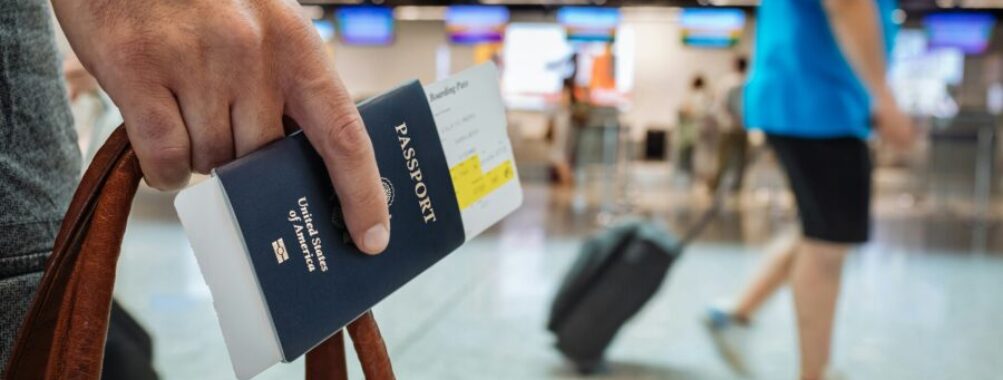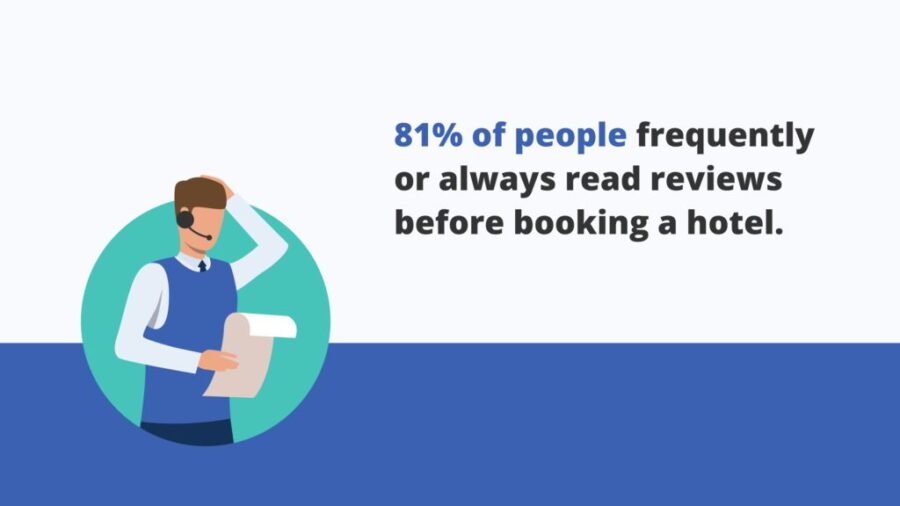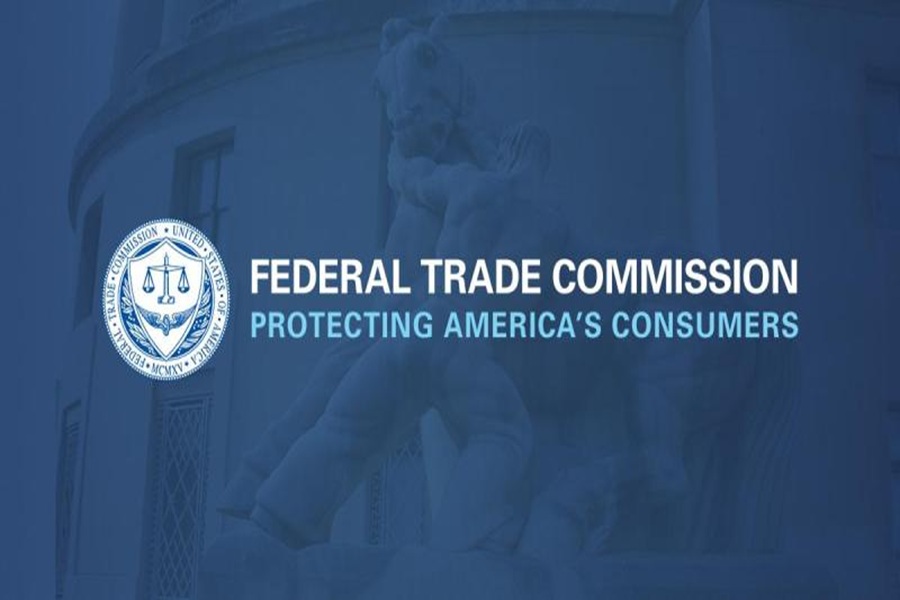
Travel Booking Scams: 7 Shocking Red Flags Every Smart Traveler Must Know Today
Thinking of booking that dream vacation? Be careful—scammers are getting smarter and targeting travelers more than ever.
Travel booking scams have shot up by 900% in just the last year and a half. That’s wild.
The best way to protect yourself from travel booking scams is to be suspicious of deals that seem too good to be true. If you spot a luxury beachfront property at half the usual price, that’s a major red flag.
Scammers build fake websites that look almost identical to legit booking platforms, hoping you won’t spot the difference. Always double-check the website address and make sure you’re using secure payment methods before entering your credit card info.
Scammers are now using AI tools like ChatGPT to whip up convincing fake listings and emails, making their tricks harder to spot than ever.
Contents
- Key Takeaways
- What Are Travel Booking Scams?
- Common Tactics Used by Scammers
- Differences Between Legitimate and Fraudulent Offers
- Recognizing Fraudulent Travel Booking Websites
- Warning Signs of Fake Booking Sites
- How To Verify Website Authenticity
- Travel Booking Scam Red Flags
- Pressure Tactics Used by Scammers
- Unusual Payment Methods to Avoid
- Types of Travel Booking Scams
- Fake Charter Flight Deals
- Timeshare Fraud Schemes
- How To Check Reviews and Ratings Before Booking
- Evaluating Online Reviews Effectively
- Consulting the Better Business Bureau and Other Resources
- Travel Booking Apps and Mobile Scams
- Risks Associated With Travel Booking Apps
- Identifying Legitimate Travel Apps
- How To Report Travel Booking Scams
- Contacting the Federal Trade Commission
- Steps for Reporting to Other Agencies
- Frequently Asked Questions
- How can I identify and protect myself from common online travel booking fraud?
- What are the red flags that could indicate a fake travel agency?
- What tactics do fraudulent travel companies use to deceive customers?
- Can you provide tips to avoid getting scammed when booking international trips?
- Are there specific airport scams related to travel bookings that I should be aware of?
- What steps should one take if they suspect they’ve become a victim of a vacation scam?
- More Travel Guides
Key Takeaways
- Always verify website URLs and look for secure payment options before booking travel online.
- Be immediately suspicious of vacation rentals or packages priced way below market value.
- Check multiple review sources and call properties directly to confirm bookings made through third-party websites.
What Are Travel Booking Scams?

Travel booking scams trick people into paying for fake travel services or steal their personal information. Booking.com says these scams have increased by 900% recently, so it’s a real concern for anyone planning trips online.
Common Tactics Used by Scammers
Phishing is everywhere. Scammers send emails or texts pretending to be from legitimate travel companies, asking for your booking details, passwords, or payment info.
I’ve seen these emails—they look scarily real! Fake booking websites are another big threat.
These sites mimic legitimate travel platforms but with subtle differences. Watch for these:
- Slightly misspelled URLs like “Bokking.com”
- Missing HTTPS in the web address
- Broken parts of the website
- Prices that are suspiciously low
Phone scams are on the rise too. Scammers call and offer amazing deals or claim to provide refunds for previous bookings.
They’ll push you to make quick decisions, which should always make you pause.
Differences Between Legitimate and Fraudulent Offers
Legit travel offers come with reasonable cancellation policies and clear terms. Scams usually have strict “no refund” rules or hide fees in the fine print.
I nearly got caught by this booking a beach trip! Payment methods can give scammers away.
Real companies take credit cards and secure payments. If someone asks for:
- Wire transfers
- Gift cards
- Cryptocurrency
- Money orders
…you should probably walk away. Customer service is another tell.
Real travel companies have working phone numbers, physical addresses, and responsive support. Scam operations? Not so much.
Verifiable reviews matter. Check multiple sources, not just testimonials on their own site.
If a company has no digital footprint or seems brand new, be extra careful.
Recognizing Fraudulent Travel Booking Websites

Spotting fake travel sites can save you from losing money and your personal info. These scammers use increasingly sneaky tactics to make travelers think they’re booking with real companies.
Warning Signs of Fake Booking Sites
Watch for deals that seem too good to be true—they usually are. I’ve seen scammers offering luxury hotel rooms at 80% off for no reason.
That’s a big red flag. Look closely at the website URL.
Legit sites like Booking.com get mimicked with small spelling changes like “Bokking.com” or “Booking-com.site”. Scammers hope you don’t notice.
If the site is full of grammar and spelling mistakes, it’s probably not professional. Big travel companies invest in quality content.
Be wary if there’s barely any contact info. Legit travel businesses give you lots of ways to reach them—phone, address, email.
Check payment methods. Fake sites often want wire transfers or gift cards instead of credit cards, since you can’t reverse those payments.
How To Verify Website Authenticity

Check reviews from several sources. Don’t trust testimonials on the site—they could be fake.
Search for the company on trustworthy review platforms and the Better Business Bureau. Test their customer service before booking.
Send a question and see if they reply quickly. Pro companies usually answer within 24 hours with real info.
Look for HTTPS in the URL and a padlock icon in your browser. These show the site uses encryption.
See if the company has a history. New websites with no track record deserve extra scrutiny.
Many scam sites pop up for a few months, then vanish. Cross-check deals with the hotel or airline directly.
I’ve dodged scams just by calling hotels to confirm a too-good-to-be-true deal.
Travel Booking Scam Red Flags
When booking your next vacation, knowing how to spot potential scams can save you from a lot of pain and wasted money. Scammers use specific tricks—unusual payment demands, fake urgency—to trip you up.
Pressure Tactics Used by Scammers
Ever had someone say that amazing deal will disappear in 30 minutes? Classic pressure tactic.
Scammers love creating fake urgency to cloud your judgment. They’ll say “only two spots left!” or slap on countdown timers to rush you.
Aggressive salespeople who won’t take no for an answer? That’s another sign.
They might call again and again or flood your inbox, pushing you to book right now. Legit travel providers give you time to think.
Be wary if someone contacts you out of the blue with “exclusive” travel offers.
Unsolicited calls, emails, or social messages about wild deals you never asked for? Almost always a red flag.
Unusual Payment Methods to Avoid

If a travel provider wants payment by wire transfer, gift card, or cryptocurrency, just nope out of there.
You can’t trace or reverse those payments. Real companies offer secure options like credit cards with fraud protection.
Be suspicious if a company won’t take standard payment methods or offers big discounts for using something weird. Watch for demands to pay the full amount upfront, especially for trips far in the future.
Most reputable services only need a deposit to start. Never share sensitive financial info over unsecured channels, and don’t give more personal data than you need for your booking.
If the payment process feels off or way too complicated, trust your gut—it probably is.
Types of Travel Booking Scams
Travel scams come in all shapes and sizes, but a few are especially common. Scammers love targeting travelers on the hunt for deals or “exclusive” vacations.
Fake Charter Flight Deals

Charter flights can look like a money-saver, but scammers know this too. They set up fake websites advertising charter flights at crazy low prices.
Sometimes they use names that sound almost like real airlines or charter companies. Watch for:
- Prices that are way too good to be true
- Requests for wire transfers or crypto
- No direct contact info (just a form or email)
- Pressure to book now for “limited seats”
I almost fell for one of these on a Mexico trip. The site looked slick, but when I saw they only took bank transfers, I got suspicious.
Always check charter companies through official aviation authorities before booking. If you’re thinking about a charter flight, see if the company has proper certification and read reviews from more than one source.
Honestly, working with a reputable travel agent who specializes in charters is probably your safest bet.
Timeshare scams still catch plenty of unsuspecting travelers with promises of luxury getaways and “investment” opportunities.
Scammers target you through cold calls, emails, or even in-person at tourist spots.
Common timeshare scams include:
- Fake resale offers—someone claims they’ve got buyers for your timeshare.
- “Free” vacation packages that require you to sit through high-pressure sales pitches.
- Upfront fee scams—they want payment to “sell” your timeshare, then disappear.
The scariest part? These operations look totally legit.
They use shiny brochures, slick websites, and smooth-talking salespeople to win your trust. Before you get involved with any timeshare, research the company.
Check with the BBB and consumer protection agencies for complaints. Legit companies don’t push you to sign contracts on the spot or demand big upfront fees.
How To Check Reviews and Ratings Before Booking

Before you hand over your hard-earned cash, take a few minutes to dig into reviews and ratings. This step could save you from a scam and make sure you actually get what you’re paying for.
Evaluating Online Reviews Effectively
Start by checking several review platforms instead of just one. Look for patterns in the feedback, not just a single glowing or angry review.
Sort reviews by “most recent” for the current scoop, and “lowest rating” to spot any trouble. Watch out for properties with all perfect 5-star ratings—sometimes that means fake reviews.
Real reviews usually include specific details and a mix of pros and cons. Check guest-uploaded photos, not just the glossy marketing pics.
I once dodged a bullet when guest photos showed a “beachfront” property was actually across a busy highway! Compare prices with similar spots nearby.
If a deal is 70% cheaper than anything else, well, you know what they say.
Consulting the Better Business Bureau and Other Resources
The Better Business Bureau (BBB) is a solid place to check business legitimacy. See if the booking site or hotel has BBB accreditation, and take note of their rating and complaint history.
A bunch of unresolved complaints? That’s a big warning sign. Don’t stop there—check consumer protection websites and travel forums.
Sites like TripAdvisor and Reddit’s r/travel often have up-to-date scam warnings. Use Google Street View to “visit” the property virtually.
You can confirm if the hotel really exists and matches the photos. For international bookings, check State Department travel advisories for scam alerts in your destination.
Local tourist boards sometimes provide lists of approved hotels and tour operators—worth a look.
Travel Booking Apps and Mobile Scams

Mobile apps have totally changed how we book travel, but they’ve also opened up new ways for scammers to get at us. As more people book on their phones, knowing how to protect yourself from app-based scams is super important.
Risks Associated With Travel Booking Apps
Fake travel apps are popping up in app stores. These look like real booking services but exist just to steal your info.
Some scammers copy brands like Booking.com, using similar logos and layouts. Phishing through legit apps is a thing too.
One traveler said they got a message through the Booking.com app that looked authentic—it was a scam. The notification matched the app’s design, so it was tough to spot.
Be cautious with apps offering deals that seem way too good. Some charge your card but never actually book anything, leaving you stranded.
Identifying Legitimate Travel Apps
Download travel apps only from official app stores (Google Play or Apple App Store). Check the developer’s name—does it match the real company?
Look at reviews and ratings. Legit apps usually have thousands of reviews and steady ratings.
Before you enter payment info, check the app’s security:
- Look for a lock icon or “https” when paying
- See if there’s two-factor authentication
- Does it use trusted payment processors?
Turn on transaction notifications in your banking app to catch sketchy charges fast. That’s saved more than a few travelers.
Test customer service before booking. Send a quick message and see if you get a real reply.
Scam apps usually have terrible or nonexistent support.
How To Report Travel Booking Scams
If you’ve been tricked by a travel booking scam, you don’t have to just take it. There are official channels where you can report these scams to get help and maybe save someone else from the same mess.
Contacting the Federal Trade Commission

The Federal Trade Commission (FTC) is usually the first place you should go if you want to report a travel scam. Head to ReportFraud.ftc.gov to file a complaint online.
You’ll need to share details about what happened, when it happened, and how much you lost. It’s not complicated, but you do have to fill in all the relevant info.
The FTC investigates these reports and goes after scammers. I can’t promise you’ll get your money back, but your complaint helps them build cases.
Keep your confirmation numbers and take screenshots of your complaint. I once reported a fake hotel booking site, and, a couple months later, the FTC actually contacted me for more info.
Steps for Reporting to Other Agencies
If you paid by credit card, call your card company right away. Most offer fraud protection and can reverse charges if you act quickly.
I’ve had charges reversed within days just by calling the number on the back of my card. It’s worth trying.
The Department of Transportation deals with air travel scams. If your problem involves airline tickets, file a complaint at transportation.gov/airconsumer.
You might also want to report scams to:
- Your state’s Attorney General’s office
- The Better Business Bureau (BBB.org)
- Action Fraud (for folks in the UK)
- IC3.gov (the FBI’s Internet Crime Complaint Center)
If you lost a significant amount, contact your local police. Hang on to all your emails, receipts, and any communication as evidence.
Frequently Asked Questions
Booking trips online can get surprisingly tricky. Here are some common questions about travel scams and a few tips to help you stay safe.
How can I identify and protect myself from common online travel booking fraud?
Check for secure websites—look for “https” in the URL and that little padlock icon. That means your data is encrypted and less likely to get snatched by hackers.
Always research companies before you book. I like to check reviews on TripAdvisor or Trustpilot, not just the glowing testimonials on their own site.
Use a credit card instead of a debit card or wire transfer. Credit cards give you better fraud protection, and you can usually dispute charges if things go sideways.
What are the red flags that could indicate a fake travel agency?
If a price seems way too good to be true, it probably is. Scams often start with deals that are suspiciously cheap.
Watch out for websites with bad design—spelling mistakes, blurry photos, or broken links. Real travel companies usually care about how they look online.
If you can’t find a real address (just a PO box or nothing at all), that’s a red flag. Legit agencies have real offices you can double-check.
Be cautious if they only accept wire transfers or gift cards. Reputable companies offer several secure payment options.
What tactics do fraudulent travel companies use to deceive customers?
“Bait and switch” happens all the time. Scammers dangle an amazing deal, then tell you it’s “sold out” and push you toward pricier options.
Some use high-pressure sales tactics, insisting you “book now” before an offer “expires.” It makes it hard to pause and think things through.
Hidden fees often pop up at checkout, making the total much higher than you expected. Read the fine print carefully.
Fake confirmation emails can look convincing but actually send you to phishing sites if you click the links.
Can you provide tips to avoid getting scammed when booking international trips?
Always check visa requirements yourself on official government sites. Some scammers charge big fees for “visa services” you could handle in a few minutes.
Watch out for sneaky currency conversion. Some companies show prices in foreign currencies to confuse you or use bad exchange rates.
Look at cancellation policies before you book, especially for international trips that might get disrupted.
Consider travel insurance from a reputable provider, not just the booking site. It gives you extra protection if things fall apart.
Don’t connect to random airport wifi networks with names like “Free Airport Wifi”—scammers use these to steal your info when you log in.
Be careful with unofficial taxi drivers. Some will tell you your hotel booking was canceled and try to take you somewhere else for a commission.
Airport kiosks selling “discounted” attraction tickets can be sketchy. Sometimes the tickets are fake or way overpriced.
If someone at the airport claims to work for your airline or hotel and asks for booking details, don’t share anything. Go straight to the official counter instead.
What steps should one take if they suspect they’ve become a victim of a vacation scam?
Call your credit card company right away and try to dispute the charges. Most cards have some kind of fraud protection, but you usually need to act fast.
File a complaint with the Federal Trade Commission (FTC). Your state’s consumer protection office is another good place to report what happened.
Let travel associations like the American Society of Travel Advisors know about the scam. They keep lists of shady companies to help warn other travelers.
Save everything—take screenshots of websites, keep copies of emails, and jot down details from phone calls. If you need to prove you got scammed, this kind of evidence can really help.



